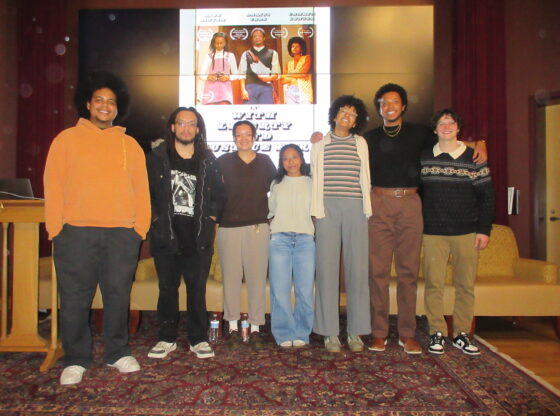It takes a certain type of movie to leave you with not simply a feeling of dislike, but frustration. These are the movies that you want so much to like that as you watch them you are constantly assuring yourself with “well the camerawork is really nice” or “it’s just experimental.” Eventually this effort becomes exhausting and you simply have to accept the movie for what it is: bad. Terrence Malick’s new film “Song to Song” falls squarely into this category.
Terrence Malick (“The Tree of Life”) is known for his profound and dream-like films, often centered around existential questions about love, God, happiness and success. While “Song to Song” certainly reflects Malick’s affinity for surreal cinematography and sentient musical scores, the flat plotline falls far below what we expect from the philosophical director/screenwriter.
“Song to Song,” set in Austin, Texas, follows two aspiring musicians—Faye (Rooney Mara, “Carol”) and BV (Ryan Gosling, “La La Land”)—and their exploitative and indulgent executive producer Cook (Michael Fassbender, “12 Years a Slave”). The central action of the film is the confusing love triangle that emerges between the mogul and his two musicians, but this drama rolls along in monotonous and flimsy scenes of aggressive sex, drunken city walks and tears of self-pity. The most aggravating element of the film, though, is the relentless droning of Rooney Mara’s voice whispering in the background of nearly every scene, repeating phrases like “such a stupid girl.” The narration, like the action, moves as if it were running on a hamster-wheel with no climax or end in sight.
Despite Rooney Mara’s natural airs of mystery, her performance is one-sided. Faye and BV’s relationship is nothing more than a repetitive contrast between chasing each other through city streets and staring silently out windows. The lack of conversation is intended to imbue the tensions of secrecy and suspicion that exist between them, but the effect is overworked and quite simply, boring. During each of their window-gazing scenes, you are silently praying that some catastrophic fight will erupt and shatter the glass. It never does.
The film does have, however, a few redeeming qualities such as the performances from Michael Fassbender and Natalie Portman (“Jackie”), who plays an unassuming waitress who is seduced by Cook’s recklessness and wealth. Fassbender expertly articulates the conflicting personas of conceit and self-loathing that haunt his character. Portman in turn finds herself immersed in Cook’s world of lust, reveling in the luxury and then quickly deteriorating. The tragedy of Portman and Fassbender’s romance is undoubtedly the most compelling story told in the Austin drama.
Terrence Malick has become notorious for vanishing into thin air and remaining there for long periods of time, only to resurface with a new, award winning film in tote. The director has in recent years been surprising his fans by releasing multiple projects within months of each other; he released “Knight of Cups” and two-versions of his documentary “Voyage of Time” in barely half a year between 2015 and 2016, and “Song to Song” was released only five months later. Perhaps “Song to Song” simply needed more time to develop. Perhaps Malick was rushed or distracting during the writing and production times. Regardless, enthusiasts of Malick’s work hope that he relocates his keen and captivating touch, but they insist that he need not hurry.











